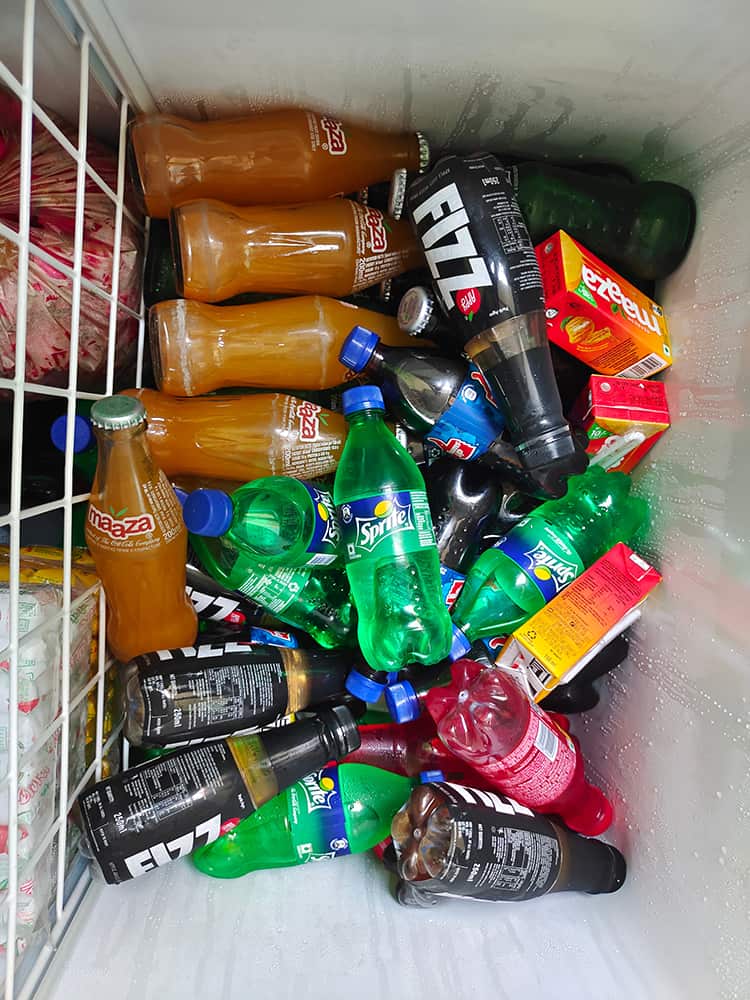Have you come across the term ‘low-tox living’ in recent years? Alexx Stuart, author of ‘Low Tox Life’ and ‘Low Tox Life: FOOD’ (both bestsellers) gave rise to this movement all around making conscious lifestyle choices when she founded the Low Tox Life online community back in 2010. This was inspired by her own troubles with excruciating recurrent tonsillitis – which only ended up improving after she eliminated processed and gluten-containing foods. Pretty interesting, right?
The ‘low-tox’ lifestyle has become increasingly popular as people seek ways to reduce their exposure to harmful chemicals and toxins in their daily lives. A ‘low-tox’ lifestyle refers to consciously minimising exposure to potentially harmful substances found in food, personal care products, household items, and the environment. This can have numerous benefits, including improved overall health and well-being, reduced risk of chronic illnesses, and also a positive impact on the environment. The thing is, what goes into products is often so opaque and we just assume that they’re safe! But what are we really exposing our bodies to?
Some considerations for a more low-tox life:

- Buying Organic and Chemical-Free: Organic foods are grown without synthetic pesticides and herbicides, reducing the risk of ingesting chemical residues.
- Avoiding Processed Foods: Processed foods often contain artificial additives, preservatives, and high levels of sugar and unhealthy fats. A ‘low-tox’ lifestyle encourages the consumption of whole, unprocessed foods that are rich in nutrients.
- Eco-Friendly Cleaning and Personal Care Products: Many conventional cleaning agents and personal care products contain toxic chemicals that can be harmful to both our health and the environment. Synthetic fragrances are often actually a major culprit here.
- Reducing Plastic Usage: Plastics can leach harmful chemicals, such as BPA and phthalates into our food and beverages. These are well-known endocrine disruptors, so can for example upset the hormonal balance of your body, amongst other things. To reduce plastic usage, you can opt for alternatives like glass, stainless steel, or silicone.
- Creating a Clean and Green Home Environment: Improving indoor air quality by using air purifiers, indoor plants, and non-toxic home furnishings can make a real difference – oftentimes indoor air is more polluted than outside.
Diet and nutrition obviously play a big part when it comes to making low tox decisions. If you think about it, the things you put in your body eventually become you! As the food you eat is essentially providing the building blocks for your cells. Unsurprisingly, the choices you make here really matter.
At the Crafty Weka Bar, we have always put an emphasis on making a real food product using real ingredients, with as little processing as possible. Eating fresh and home-cooked isn’t always an option at every step – people lead busy lives! – and we believe there need to be quality and nutritious products available to people.
Looking at the back of food packaging can be pretty bamboozling these days! Half the ingredients listed aren’t anything you’ve ever heard of! Which is exactly where the problem lies. When aiming for a low-tox lifestyle, it’s essential to know which chemicals commonly found in everyday products are best avoided. These additives are known for their potential adverse effects on human health and the environment.
Here are some top additives to avoid:
- Artificial Flavors: Artificial flavors are chemical compounds used to mimic natural flavors. These additives can lead to a loss of connection between taste and nutrition, potentially leading to overconsumption of unhealthy foods.
- Preservatives: Preservatives like BHA (butylated hydroxyanisole) and BHT (butylated hydroxytoluene) are added to extend the shelf life of processed foods. Some studies have indicated that these additives may have carcinogenic properties and negatively impact the endocrine system.
- Monosodium Glutamate (MSG): MSG is a flavor enhancer commonly used in many packaged and processed foods. Some people may experience adverse reactions like headaches, nausea, and sweating after consuming MSG.
- Trans Fats: Partially hydrogenated oils are a major source of artificial trans fats in processed foods. Trans fats have been linked to an increased risk of heart disease and should be avoided. Luckily these have been outlawed in most places now.

- Sodium Nitrite and Nitrate: These are commonly used as preservatives in processed meats like bacon, hot dogs, and deli meats. Consumption of these additives has been associated with an increased risk of certain cancers.Phthalates: These chemicals are often used in plastics and can leach into food from packaging and containers. Phthalates have been linked to hormone disruption and may have adverse effects on reproductive health.
- Triclosan: Commonly found in antibacterial soaps and other personal care products, triclosan may contribute to antibiotic resistance and may have harmful effects on the environment.
- High fructose corn syrup (HFCS) is a highly-refined sugar sweetener which is found in almost all processed foods. HFCS is linked to unhealthy weight gain, increases your LDL (“bad”) cholesterol levels, and therein may contribute to the development of diabetes and tissue damage. More prevalent in the US due to local corn subsidies there, but still one to keep an eye out for.
It can be scary to read all of these and wonder what you might be putting into your body on a regular basis! But rest assured that if you’re putting an emphasis on produce (i.e. fruit and veg) over products, eating a variety of foods, cooking at least a good portion of your own meals, and taking the odd check of product labels, you’re likely doing great! If you do happen to have health concerns such as skin troubles or eczema, poor immune function (lots of colds and infections), gut troubles or erratic or painful periods, looking at cutting out some toxins can be a promising avenue to go down. Especially if you feel like you’ve exhausted all your ‘traditional’ options.
Do you have any insights into low tox living and how it’s affected your life? Let us know in the comments below!





